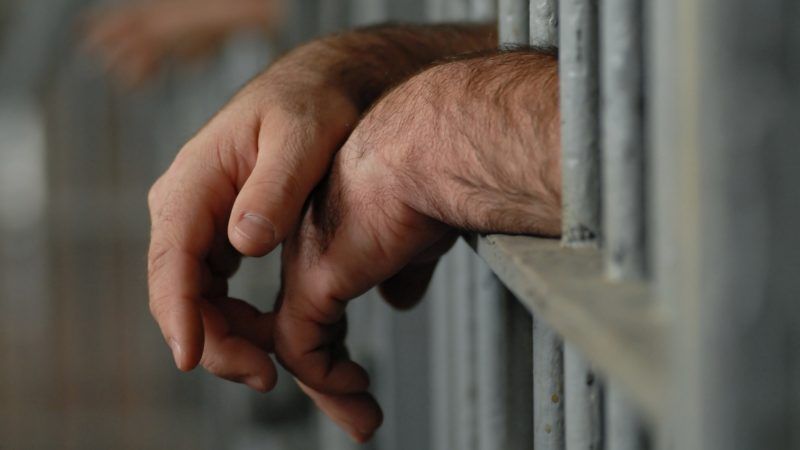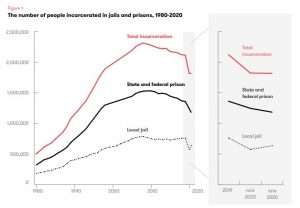U.S. Incarcerated Population Dropped Below 2 Million Last Year For First Time Since 2003
The COVID-19 pandemic drove an unprecedented drop in incarceration, a new study finds, but the authors warn it could bounce right back.

The total incarcerated population of the U.S. fell dramatically last year amid the COVID-19 pandemic, dipping below 2 million for the first time since 2002, according to a new report by the Vera Institute of Justice.
The report found that the total number of people incarcerated in U.S. prisons and jails fell from 2.1 million in 2019 to 1.8 million in mid-2020, an unprecedented 13 percent decline. The total incarcerated population of the U.S. peaked in 2009 at a staggering 2.3 million.
Since 2009, the total incarcerated population has fallen as states passed a wave of bipartisan criminal justice reforms in response to exploding prison budgets, crumbling infrastructure, and an increasingly loud outcry over the human costs of mass incarceration.
The Vera Institute's numbers track with other surveys of the U.S. criminal justice system. The Department of Justice's Bureau of Justice Statistics (BJS) reported last year that the U.S incarceration rate fell in 2019 to its lowest level since 1994.
The COVID-19 pandemic only accelerated this trend. As the virus spread through the U.S. last spring, jurisdictions took unprecedented steps to reduce the populations of their crowded, unsanitary prisons and jails, such as halting the intake of new inmates and releasing people who had been held in jail for minor offenses.
The study also found that, while jails in rural counties saw the biggest initial drops, they still incarcerate people at double the rate of urban and suburban areas. "Even with dramatic declines, rural areas still have the highest incarceration rates by far," the report says. "Three out of five people incarcerated in local jails are in smaller cities and rural communities."
The authors say that their findings show that, while decarceration happened, it's by no means permanent nor does it come close to closing the gap between the U.S. and the rest of the world when it comes to putting people behind bars.
"Despite the historic drop in the number of people incarcerated, the decrease was neither substantial nor sustained enough to be considered an adequate response to the COVID-19 pandemic, and incarceration in the United States remains a global aberration," the report says.



Show Comments (24)